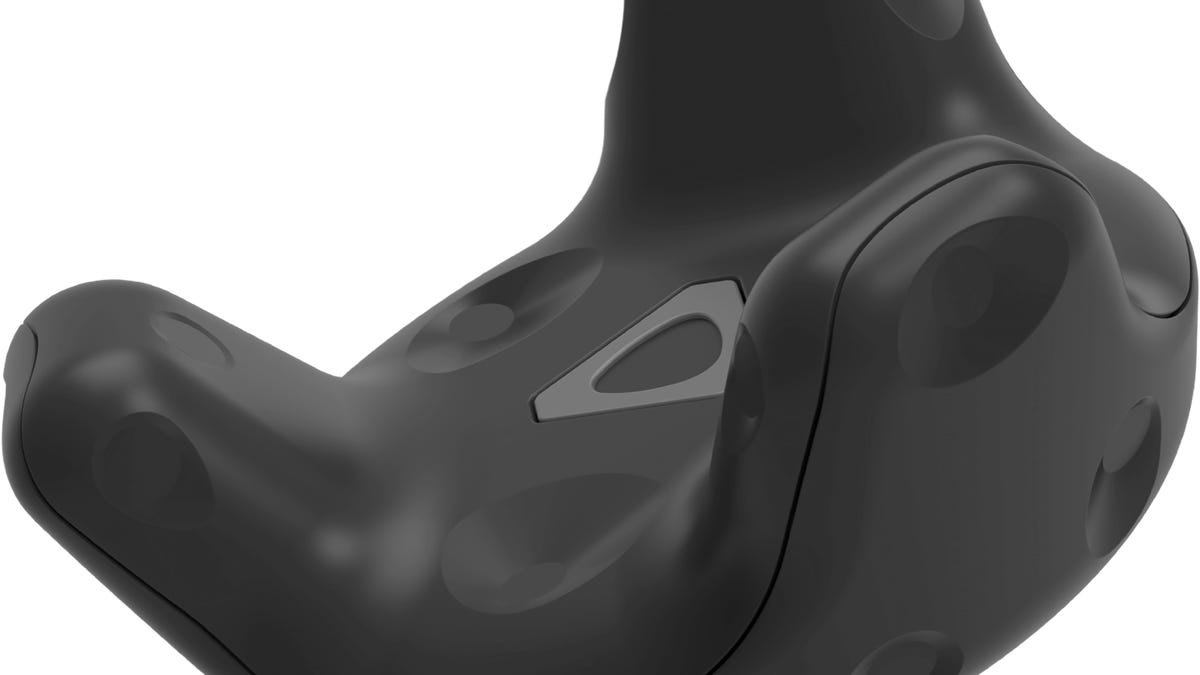HTC Vive Tracker lets you take real objects into the VR world
At CES 2017, HTC introduces two accessories to its Vive virtual reality system, including a more comfortable head strap with integrated audio.

HTC is on a mission to bring virtual reality to the mainstream.
Virtual reality, a much-buzzed about technology that can take you to different digital worlds through special headsets, burst onto the scene in a big way in 2016, with the Vive system from HTC and Valve, and the Oculus Rift by Facebook. So far, VR systems are only something gadget enthusiasts and hardcore gamers would consider.
HTC's general manager for the VR business, Dan O'Brien, referred to 2016 as a coming out moment for VR, and 2017 as the year to establish the future.
HTC executive Dan O'Brien showing off the new Deluxe head strap.
Unfortunately, the company's announcements at CES on Wednesday aren't going to move the needle.
HTC unveiled two accessories for the Vive system, a Vive Tracker that lets you attach other physical peripherals or controllers so they can be tracked in the VR world, as well as a new head strap with integrated audio for a more comfortable fit. It also showed off a device that lets you swap out the cable with a wireless connection, removing one of the more irritating parts of the system.
These accessories represent incremental improvements to the Vive VR system -- expanding the number of devices that can be taken into the VR world, or making things a bit more comfortable -- but do little to address the dilemma that it's still far too expensive for the casual consumer. The Vive, alongside the Oculus Rift, are the top-tier VR systems in an increasingly crowded market. Vive costs $800 and requires a high-end PC.
"It's evolution in the right direction," said IDC analyst Ramon Llamas. "It's answering some of the needs and demands from a hardware perspective."
The Vive Tracker has a screw attachment that lets you connect other peripherals. The idea is game or accessory makers can build physical peripherals, anything from a baseball bat to a gun. Those peripherals can be attached to the Tracker so they will be recognized by the Vive's position-tracking technology. HTC said it already has eight different partners working on accessories.
The Vive Tracker will hit the market in the second quarter, but HTC didn't disclose the price.
The Vive Deluxe Audio Strap has a more comfortable strap that goes along the top of your head and comes with earphones for integrated audio. It will also come out in the second quarter, with no price information available yet.
O'Brien, who spoke at a press conference at the Wynn hotel in Las Vegas, also teased that the Vive will eventually cut the cord, which is still required between the headset and your PC. It sometimes makes the experience clumsy when you're spinning around.
HTC said it was working with Intel on wireless technology called WiGiG, which offers a high-speed connection over short range. The company didn't give a timing on when consumers would see the technology rolled out.
One quick fix is a tethering box called the TPCast. The box sits on top of the Vive headset and replaces the cable to the PC. It too will launch in the second quarter for $249.
On the content side, Rikard Steiber, president of HTC's Viveport, said the company would charge a subscription for gamers looking to play any VR game or experience any content. Think Netflix for VR.

